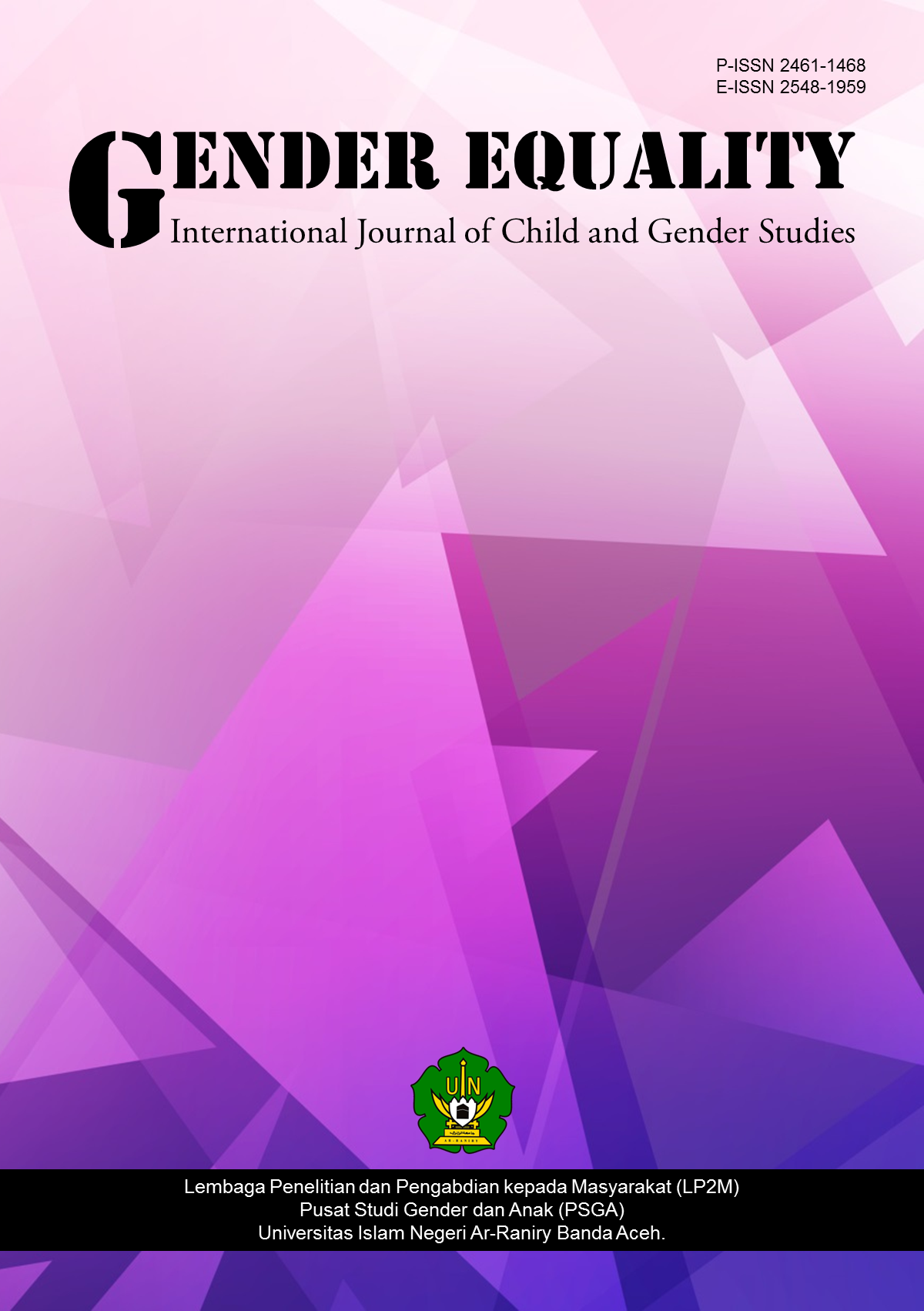PEMBINAAN IKLIM KASIH SAYANG TERHADAP ANAK DALAM KELUARGA
DOI:
https://doi.org/10.22373/equality.v5i1.5378Keywords:
Pembinaan, Kasih Sayang & Keluarga.Abstract
This paper intends to provide an overview of the importance of affection for children in the family. This writing is based on the needs of children in their childhood because they have not yet perfect knowledge and mental readiness to live together with adults. Therefore parents have the task of providing education that can accommodate their instinctive natural needs. Children are God's mandate that needs to be given education. The process of children's education starts from the mother’s womb until adulthood. Parents have the responsibility of educating children in the right way in accordance with Islamic teachings. The main obligation is to instill faith in a child's soul. Muslim families who are builded on the basis of faith have the following identities: first, the righteous beliefs and to Allah SWT. Second, worship (al-ibadah ash-shahihah) in accordance with the shari'ah of Allah and His Messenger. And third, applying moral values (al-Akhlaqul karimah) in the family through education in the household. To realize the responsibility of taking care of children need several strategies.References
Achmadi, Ilmu Pendidikan Islam II, Salatiga: Fakultas Tarbiyah IAIN Walisongo, 1988.
Abdul Hamid Al-Hasyimi, Mendidik Ala Rasulullah, Jakarta Selatan, Pustaka Azzam 2001
Abdullah Nasikh Ulwan, Pendidikan Anak Dalam Islam, jilid.1 Jakarta: Pustaka Amani, 2002.
Abdurrahman An-Nahlawi, Pendidikan Islam di Rumah, Sekolah dan Masyarakat, Jakarta: Gema Insani Press, 1995.
Departemen Pendidikan dan Kebudayaan, Kamus Besar Bahasa Indonesia, Jakarta: Balai Pustaka, 1995.
Fauzi Saleh, Konsep Pendidikan dalam Islam, (Pendidikan Keluarga dan Pengaruhnya terhadap Anak), Cet. I, Banda Aceh: Yayasan Pena, 2005.
H.M. Arifin, Ilmu Pendidikan Islam, Tinjauan Teoritis dan Praktis Berdasarkan Pendekatan Interdisipliner, Jakarta: PT. Bumi Aksara, Cet. I, 2003.
Hasan Langgulung, Manusia dan Pendidikan, Suatu Analisa Psikologi, Jakarta: Pustaka Al-Husna, 1996.
http://lppkk-umpalangkaraya.blogspot.com/2014/09/materi-8-akhlak-dalam-keluarga.html
Husain Mazhahiri, Pintar Mendidik Anak, Panduan Lengkap bagi Orang Tua, guru, dan masyarakat berdasarkan ajaran Islam, Cet.V, Jakarta: Lentera Basritama 2000
Noeng Muhadjir, Ilmu Pendidikan dan Perubahan Sosial: Suatu Teori Pendidikan, Yogyakarta: Rake Sarasin, 1987.
Nurwadjah Ahmad, Tafsir Ayat-ayat Pendidikan (Hati yang Selamat Hingga Kisah Lukman), Bandung: Marja, Cet. I, 2007.
Nurwadjah Ahmad, Tafsir Ayat-ayat Pendidikan (Hati yang Selamat Hingga Kisah Lukman), Bandung: Marja, Cet. I, 2007.
Syaikh Az-Zarnuji, Ta’lim Muta’allim, terj. Abdul Kadir Al-Jufri, Surabaya: Mutiara Ilmu, 2009.
Usman Najati, Belajar EQ dan SQ dari Sunnah Nabi, Terj. Irfan Salim, Jakarta Selatan: Hikmah, 2002.
Yusuf Qardhawi, Merasa Kehadiran Tuhan,Yokyakarta: Mitra Pusaka,2000.
Yusuf Qardhawi, Pendidikan Islam dan Madrasah Hasan al-Banna, Terj, Jakarta: Bulan Bintang, 1980
Downloads
Published
Issue
Section
License
GENDER EQUALITY: International Journal of Child and Gender Studies allows the author(s) to hold the copyright and to retain the publishing rights without restrictions. Authors who publish with this journal agree to the following terms:
- Authors retain copyright and grant the journal right of first publication with the work simultaneously licensed under a Creative Commons Attribution License that allows others to share the work with an acknowledgment of the work's authorship and initial publication in this journal.
- Authors are able to enter into separate, additional contractual arrangements for the non-exclusive distribution of the journal's published version of the work (e.g., post it to an institutional repository or publish it in a book), with an acknowledgment of its initial publication in this journal.
- Authors are permitted and encouraged to post their work online (e.g., in institutional repositories or on their website) prior to and during the submission process, as it can lead to productive exchanges, as well as earlier and greater citation of published work.



